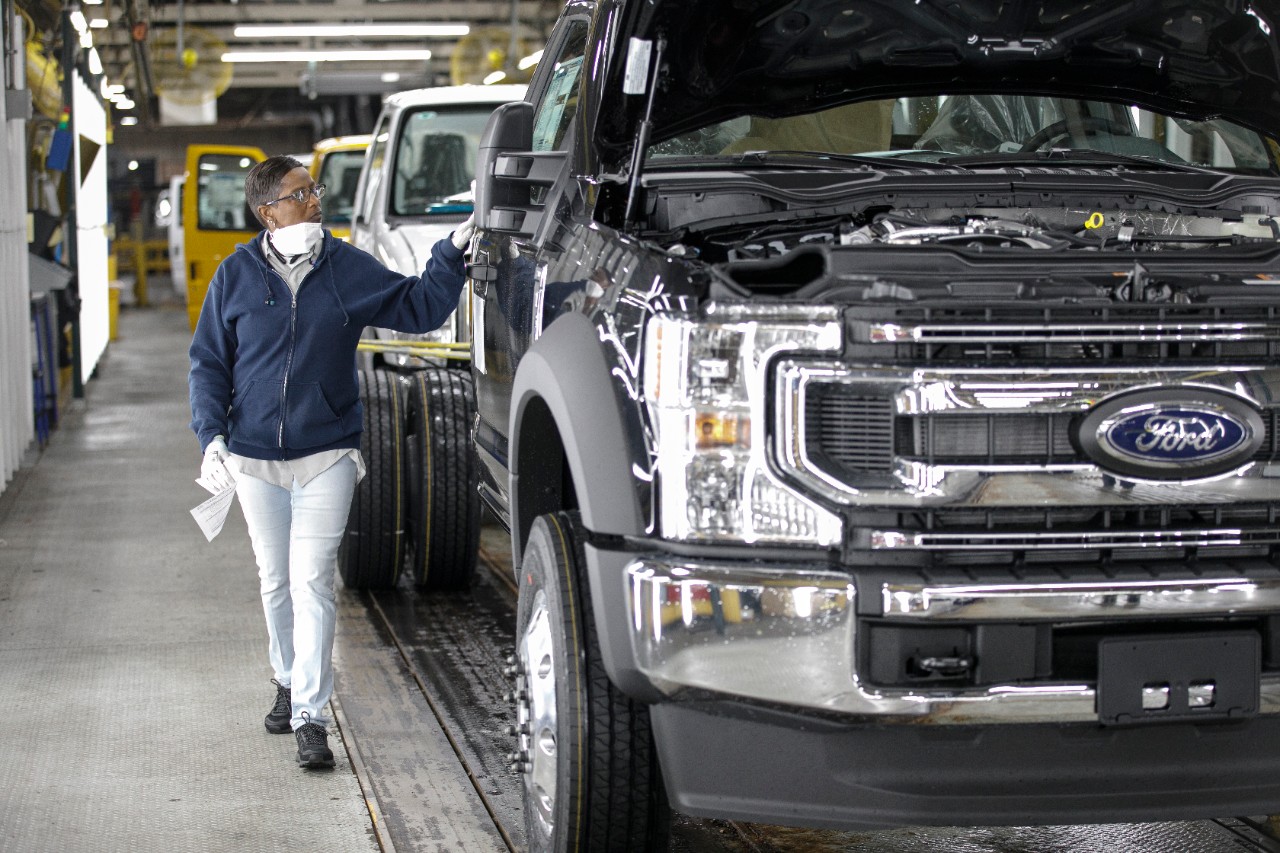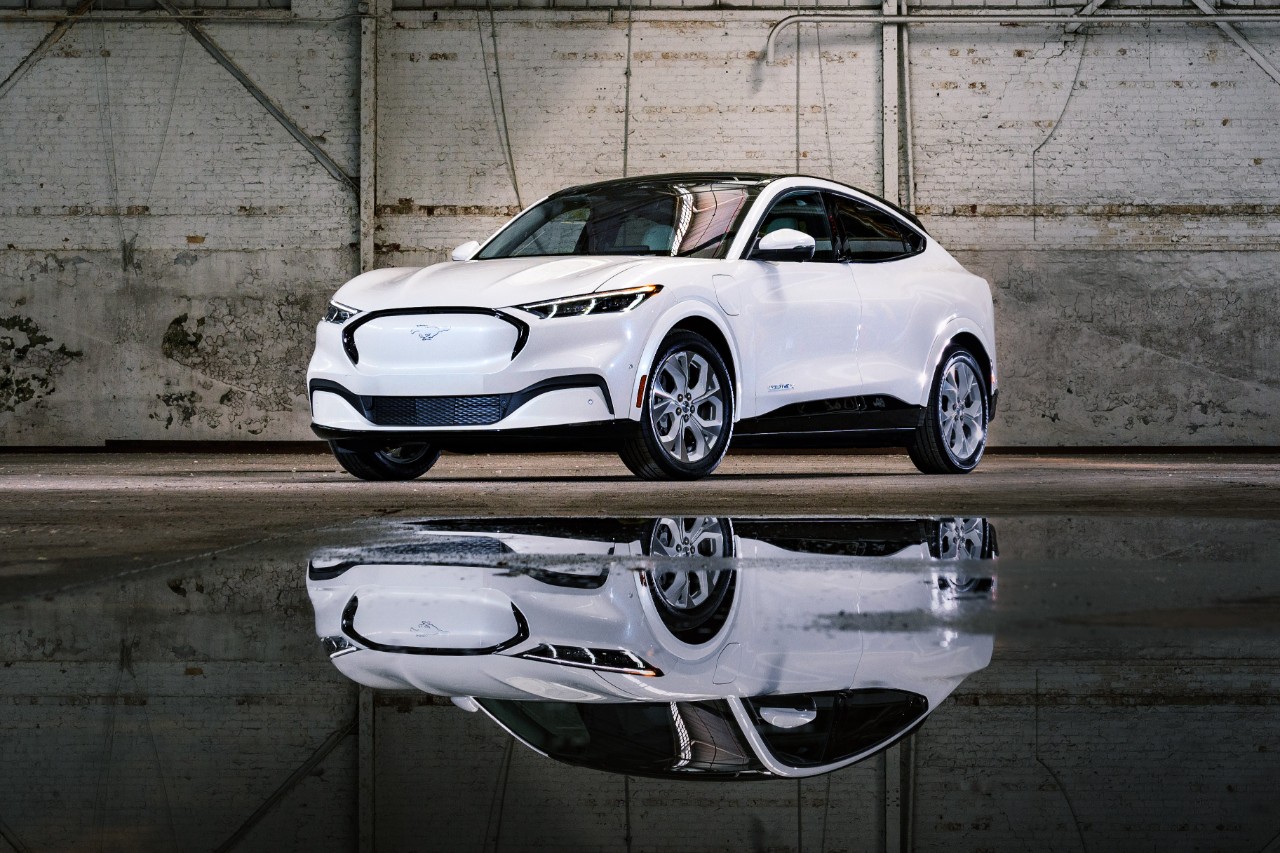Check out the latest Ford and Tesla earnings call transcripts.
The auto industry is more than a century old and it's gone through huge changes during its history. During the 20th century, automobiles went from being aspirational goals to staples of everyday life, with owning a car becoming a commonplace event. Ford Motor (F 0.44%) helped make that vision a reality with its mass-market assembly line business model that made vehicles affordable to the general public.
Now, consumers have seen their appetites change. Advances like electric propulsion, self-driving technology, and in-vehicle entertainment have become must-have features, and many consumers never really want to buy cars at all, instead hoping to rely on ridesharing services and other alternatives to full ownership. In that vein, Tesla (TSLA +4.08%) has sought to turn the industry upside down, and it's had plenty of early success. Let's take a closer look at Ford and Tesla to see which one looks like the smarter pick for automaker-stock investors right now.
Stock performance and valuation
Ford and Tesla have seen recent performance that's as different as the business models they're pursuing. Ford has struggled, losing a third of its value over the past year. Tesla has seen its share of ups and downs, but on balance, it's managed to post a 3% gain since January 2018.
Valuations of the two companies also couldn't be more different. Investors tend to look at Ford as a traditional car company, and they haven't been willing to give it a premium valuation based on current industry trends. Its shares currently trade at just six times trailing earnings, and even with expectations for a slightly weaker future for the mainstream auto industry, Ford's forward earnings multiple is less than 7.
By contrast, many investors see Tesla as a growth stock, and they've assigned a valuation that's consistent with that classification. Tesla shares trade at 55 times forward earnings expectations, and the company hasn't yet found consistent profits.

Image source: Tesla.
It's therefore difficult to compare the two stocks based on valuation. Because the two companies are at such different points in their respective histories, the way in which shareholders have to assess their future prospects and put a price on their stock differ too greatly for a fair comparison.
Dividends
Investors who want income from their portfolios have a clearer choice than those who base their investing decisions solely on valuation. Tesla is plowing all of its cash flow back into its business, and doesn't pay a dividend at all, nor is it likely to start one anytime soon. By contrast, Ford has a huge dividend yield that exceeds 7% right now, and it's been able to sustain its dividend payouts even as it starts to face greater challenges in the highly cyclical industry.
Some have been concerned that Ford's dividend yield is so high that it's signaling a potential cut in the near future. Yet when you look at Ford's earnings, you'll see that the dividend represents less than half of the automaker's profit over the past 12 months. That points to a sustainable payout, although it's always possible that the automaker will choose to divert some of its available cash toward paying down debt rather than rewarding shareholders with dividends.
The big question for Ford is what will happen during the next cyclical downturn. With a substantial amount of cash on the balance sheet, Ford would be able to fund dividends for quite a while even when earnings decline during a slowdown, and that should give shareholders some comfort.
Growth prospects and risks
Many have been concerned about Ford's potential growth because of cyclical trends in the industry. Meanwhile, though, demand for Tesla vehicles remains solid, and so there are fewer growth concerns centering on the electric vehicle maker's customer pipeline.
Yet many seem to be overly discounting Ford's prospects. It's true that Ford's sales were down in 2018 compared to 2017 levels, with sales of sedans and performance vehicles seeing a lot of stress during the period. Even so, Ford was able to see a lot of successes during the year, including gains in sales of the key F-series line of pickup trucks and a big ramp-up in demand for large SUVs. The high margins and sales prices for trucks and SUVs had a big, positive impact on Ford's financial performance. Moreover, some believe that sales might well improve in 2019 -- although to take maximum advantage of its opportunities, Ford will have to mount successful recovery efforts in key global markets like China and Europe.
For Tesla, high demand and rising delivery capacity have been positives for the electric car giant. Yet it too faces challenges. Price cuts in China signal potential hiccups in finding customers for Tesla vehicles there, especially in light of trade tensions with the U.S. over the past year. Tesla has also had to make good on promises to make up for expiring tax credit provisions for U.S. buyers, and while that's a smart strategic move from a loyalty standpoint, it'll be costly in the short run. In many ways, Tesla's future success will depend on how it can keep innovating over the long run -- even if that innovation goes in a different direction than its current car-focused business.
Choosing between Ford and Tesla really depends on your preferred style of investing. Ford shows few signs of strong growth in its future, but its vehicles have a strong, loyal following and will continue to bring in profitable sales. Tesla has a lot more growth potential, but it trades at a premium share price that counts on future success. In recent years, Tesla's clearly been the better stock to own, but Ford shareholders remain confident that the classic automaker will find a way to turn things around.








